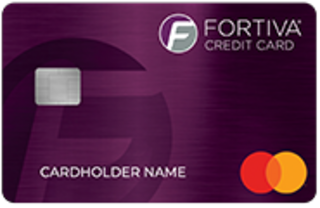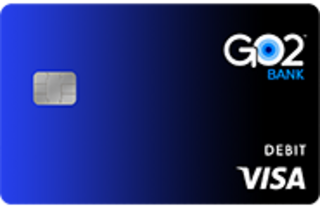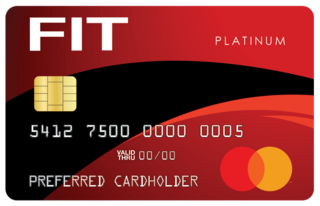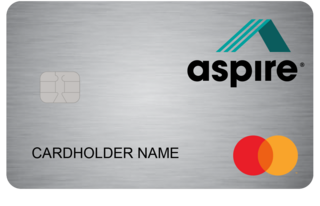Best Credit Cards for Bad Credit: Rebuild Your Score Without Breaking the Bank
Having bad credit doesn’t mean you’re stuck without options. Whether you’re recovering from financial setbacks or just starting to build credit, the right credit card can help you move forward. There are plenty of solid choices—both secured and unsecured—that can help you rebuild your credit while keeping fees and risks low.

- Earn 3% Cash Back Rewards* on Gas, Groceries and Utility Bill Payments
- Up to $1000 Credit Limit
- Simple, Secure Online Application
- No security deposit
- Free Credit Score
*See Program Terms for important information about the cash back rewards program.

- Overdraft protection up to $200 with opt-in and eligible direct deposit*
- No monthly fees with eligible direct deposit, otherwise $5 per month
- Earn up to 7% cash back when you buy eGift Cards in the app
- Get your pay up to 2 days early - Get your government benefits up to 4 days early.*
- High-yield savings account, 4.50% APY paid quarterly on savings up to $5,000.*
*Terms and conditions apply. Cards issued by GO2bank, Member FDIC, pursuant to a license from Visa U.S.A., Inc. Overdraft fees may apply. Click Apply Now to learn more.

- $400 credit limit doubles to $800! (Simply make your first 6 monthly minimum payments on time)
- All credit types welcome to apply
- Monthly reporting to the three major credit bureaus
- Initial Credit Limit of $400.00 (Subject to available credit)
- Fast and easy application process; results in seconds
- Use your card at locations everywhere Mastercard® is accepted
- Access to your Vantage 3.0 score from Experian (When you sign up for e-statements)
- Checking Account Required

- Simple, Secure Online Application
- No security deposit
- Free Credit Score
- Earn 3% Cash Back Rewards* on Gas, Groceries and Utility Bill Payments
- Up to $1000 Credit Limit
*See Program Terms for important information about the cash back rewards program.
Secured vs. Unsecured: What’s the Difference?
Secured credit cards require a refundable deposit that typically becomes your credit limit. These cards are designed for people who are new to credit or need to rebuild it after some damage. Because the risk to the lender is lower, they’re easier to qualify for.
Unsecured credit cards, on the other hand, do not require a deposit but are harder to get with poor credit. They often come with higher interest rates and may have annual fees. However, they still offer a way to demonstrate creditworthiness if managed responsibly.
Top Secured Credit Cards for Bad Credit
Discover it® Secured Credit Card
- Annual Fee: $0
- Rewards: 2% cash back at gas stations and restaurants (up to $1,000 per quarter), 1% on all other purchases.
- Deposit: Minimum $200
- Highlights: Reports to all three major credit bureaus, and after several months of responsible use, you may be eligible for an upgrade to an unsecured version.
Capital One Platinum Secured Credit Card
- Annual Fee: $0
- Deposit: As low as $49, $99, or $200, depending on your credit profile.
- Highlights: Access a higher credit limit after five on-time monthly payments. A solid option if you want flexibility and a low entry cost.
OpenSky® Secured Visa® Credit Card
- Annual Fee: $35
- Deposit: Minimum $200
- Highlights: No credit check required to apply, making it ideal if your credit score is very low or you have no history at all. Reports to all three credit bureaus.
Top Unsecured Credit Cards for Bad Credit
OneMain Financial BrightWay® Card
- Annual Fee: $0–$89
- Credit Limit: Starts at $300
- Rewards: 1% cash back on all purchases
- Highlights: Transparent fees and a flat cash-back rate make this a decent unsecured option for those rebuilding credit.
Credit One Bank® Platinum Visa® for Rebuilding Credit
- Annual Fee: $75 first year, then $99 annually
- Rewards: 1% cash back on eligible purchases like groceries and gas
- Highlights: Offers pre-qualification with no hard credit inquiry. You can track your credit score for free and get automatic reviews for credit line increases.
Mission Lane Visa® Credit Card
- Annual Fee: $0–$59, depending on credit
- Rewards: None
- Highlights: Simple terms and fast prequalification process. Reports to all three credit bureaus and offers credit line increases after six months of on-time payments.
At-a-Glance Comparison Table
| Card Name | Type | Annual Fee | Rewards | Credit Check | Min. Deposit |
|---|---|---|---|---|---|
| Discover it® Secured | Secured | $0 | 2% gas/dining, 1% all others | Yes | $200 |
| Capital One Platinum Secured | Secured | $0 | None | Yes | $49–$200 |
| OpenSky® Secured Visa® | Secured | $35 | None | No | $200 |
| OneMain Financial BrightWay® | Unsecured | $0–$89 | 1% cash back | Yes | N/A |
| Credit One Bank® Platinum Visa® | Unsecured | $75–$99 | 1% on select categories | Yes | N/A |
| Mission Lane Visa® | Unsecured | $0–$59 | None | Yes | N/A |
Tips for Using Credit Cards to Rebuild Credit
Make Timely Payments Every Month
Payment history is the biggest factor in your credit score—accounting for about 35%. Even one late payment can cause a significant drop in your score. Set up autopay or calendar reminders to ensure you never miss a due date.
Keep Your Credit Utilization Low
Try to use less than 30% of your available credit. This shows lenders that you’re managing your credit responsibly. For example, if your credit limit is $300, keep your balance under $90.
Don’t Apply for Multiple Cards at Once
Each credit card application triggers a hard inquiry on your credit report. Too many inquiries can lower your score temporarily and signal to lenders that you’re in financial distress.
Monitor Your Credit Progress
Use free tools from your card issuer or third-party apps to keep tabs on your credit score. Watching your progress can help you stay motivated and catch errors early.
Upgrade or Transition When Ready
Some secured cards offer the chance to graduate to an unsecured version after demonstrating responsible use. This can open up better terms, higher credit limits, and even rewards programs.
Start Rebuilding with Confidence
There’s no quick fix for bad credit, but with the right card and smart habits, you can start building a stronger financial future. Whether you go with a low-deposit secured card or a forgiving unsecured option, consistent, responsible use is your ticket to better credit—and better opportunities.
Get Started Today
Getting More Money into YourPocket Starts With Your Inbox!
Create a free account with YourPocket, and get tools you need for financial freedom and control.
